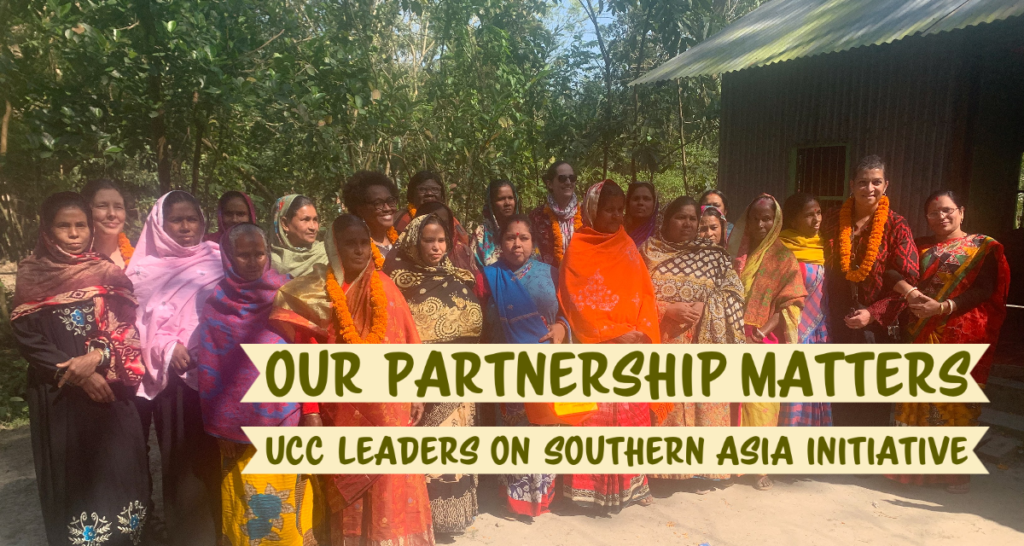UCC Leaders on Southern Asia Initiative: Our Partnership Matters
Written by Connie Larkman, originally posted here.
They were 12 travelers, representing three denominations, visiting more than a dozen partners in three countries over 10 days. A pilgrimage to Southern Asia, Jan. 25- Feb. 7, proved to be a powerful experience for leaders of the United Church of Christ, the Christian Church (Disciples of Christ) and the United Church of Canada.
The delegation included the Revs. John Dorhauer and Karen Georgia Thompson, executives of the UCC, the Rev. Terri Hord Owens, general minister and president of the Disciples, and Richard Bott, moderator of the Canadian church. Their journey, including travel days on both ends, spanned 17 days.
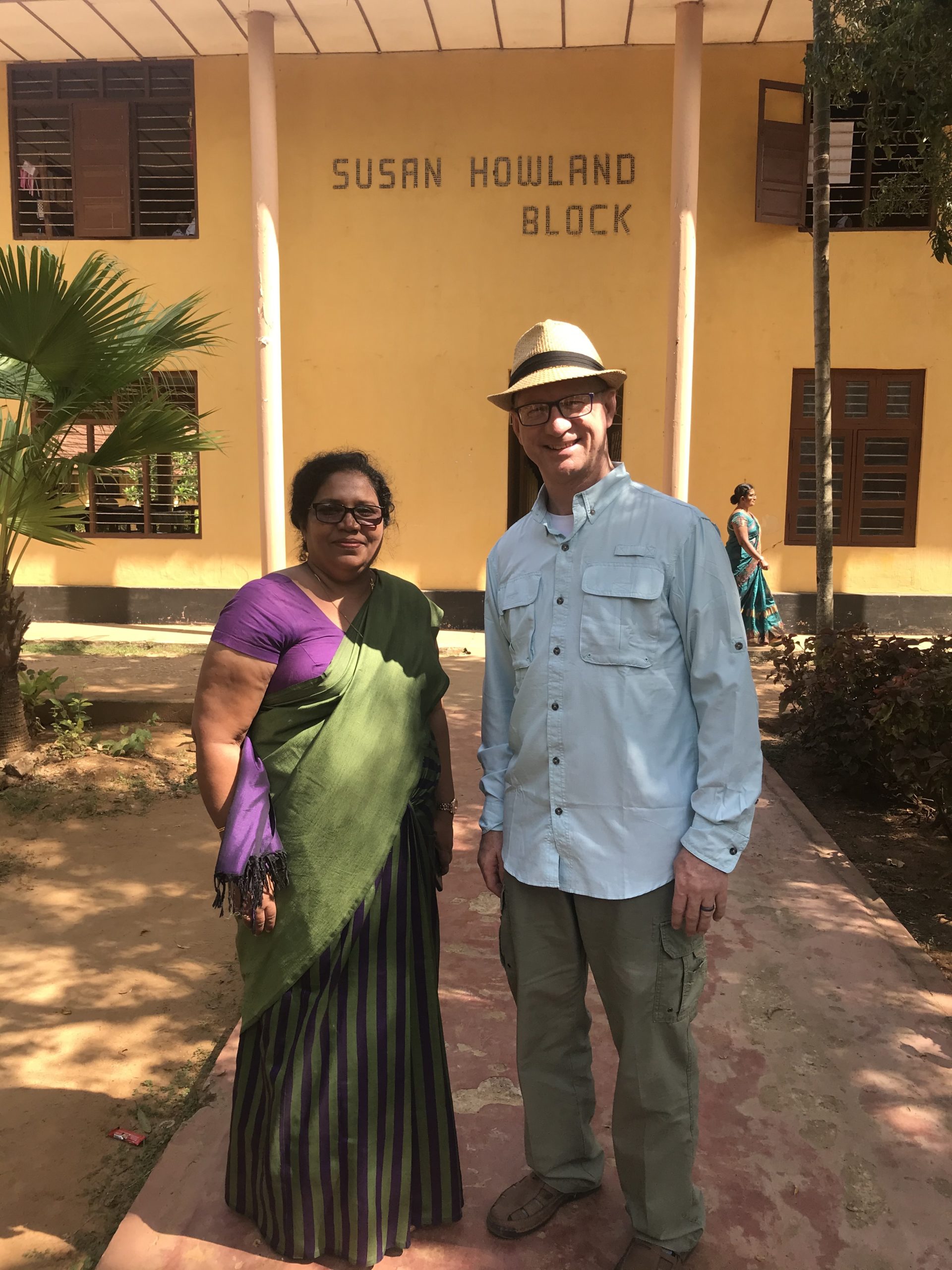 “Seventeen days is a long time,” Dorhauer said. “But the schedule was nothing short of brilliant. Long days. Short nights. A different bed almost every night. Long drives on dangerous roads. And yet every single thing we did would have been sufficient to say if THAT was all we did, it would have been worth it. To see that our partnership is changing lives for the better in war-torn, refugee-filled, poor countries and their villages half-way around the world is a powerful thing.”
“Seventeen days is a long time,” Dorhauer said. “But the schedule was nothing short of brilliant. Long days. Short nights. A different bed almost every night. Long drives on dangerous roads. And yet every single thing we did would have been sufficient to say if THAT was all we did, it would have been worth it. To see that our partnership is changing lives for the better in war-torn, refugee-filled, poor countries and their villages half-way around the world is a powerful thing.”
The trip, part of the Global Ministries Southern Asia Initiative, allowed national leadership to meet their partners and the people of Sri Lanka, Bangladesh and India involved in a number of community-led projects – with neighbors and friends empowering each other.
The group landed in Sri Lanka, where they met with representatives of the Church of the American Ceylon Mission, then moved to Bangladesh for interaction with The Christian Commission for Development in Bangladesh, working in a number of localities. India was the final stop, where the delegation met with human rights activists at the YWCA of India and with Global Ministries partners, the Centre for Social Equity and Inclusion and WeEducate (Delhi Samaritans). Each day, one of the travelers wrote about their experiences, which can be found here.
“Our partners are working with the most marginalized communities in all three countries to show them that they have a right to live a dignified life,” said Rebekah Choate, Global Ministries associate for global advocacy and education. She said it was evident in every meeting, that message was being heard. “We saw this in the women who are no longer afraid to speak up and share their opinions and in the minority Christian community speaking up for the rights of the minority Muslim community in India.
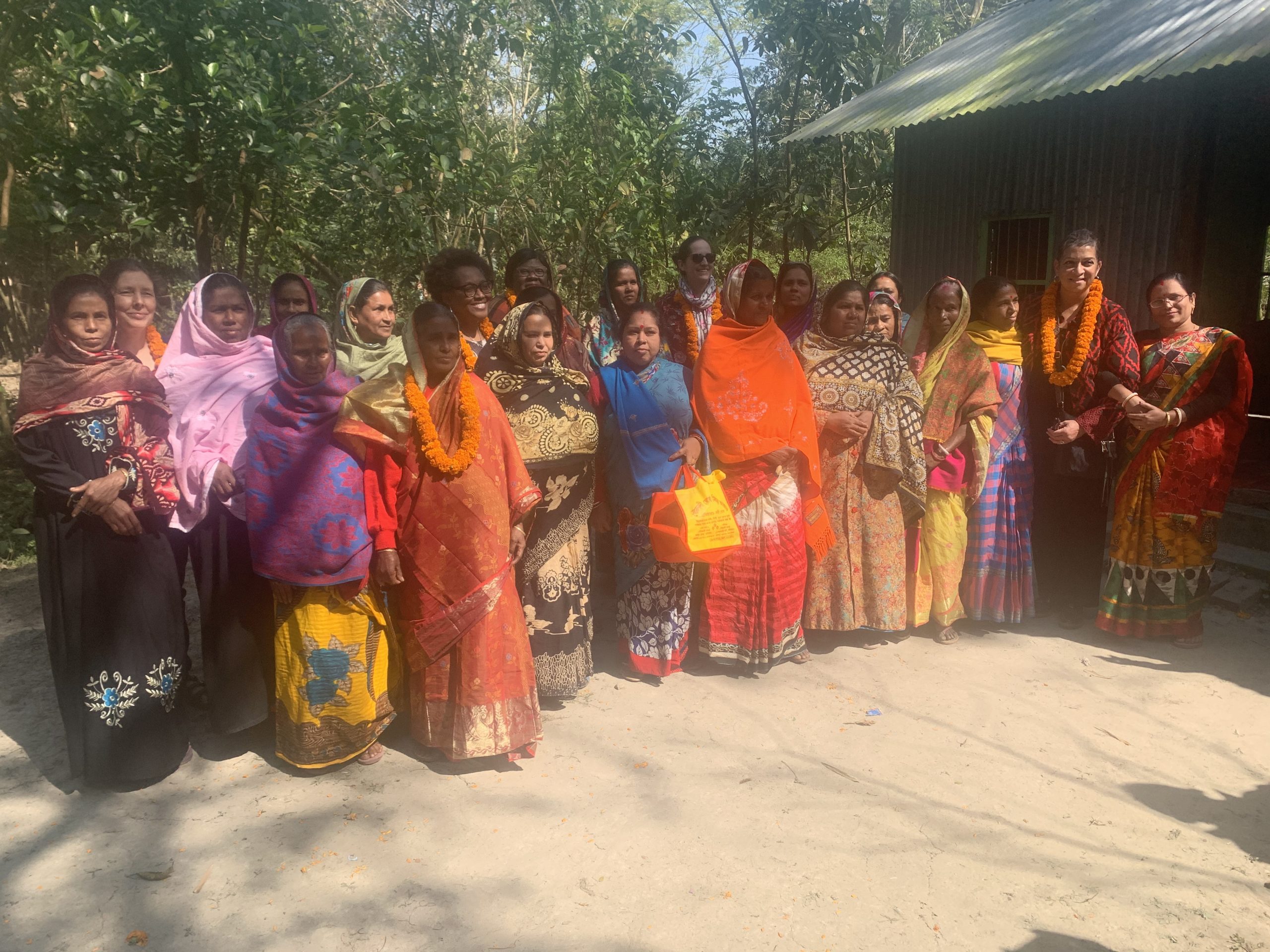
“In Bangladesh, local farmers are teaching each other how to make organic fertilizers and pesticides. In India, a woman organized other women in her neighborhood to come together and talk about domestic violence and the importance of educating their children. In Sri Lanka, it’s a small, rural community recovering from the civil war who realized they need psychosocial support and asking a local nongovernmental organization to come in and provide some therapy. Every partner is working with communities to find their own solutions. This means that the community has ownership over the whole project. It’s not someone from outside telling them what to do, it’s local people coming up with creative solutions and teaching their neighbors how to do it.”
At every stop – and every day there were several – Dorhauer said the delegation was greeted “with warmth and love and overwhelming hospitality. They knew us – not yet by name, but as their partners. They showed off – proud as peacocks to tell us their stories of survival and courage.”
Many of the travelers were especially touched by the people in the village in the Patharghata region in Bangladesh.
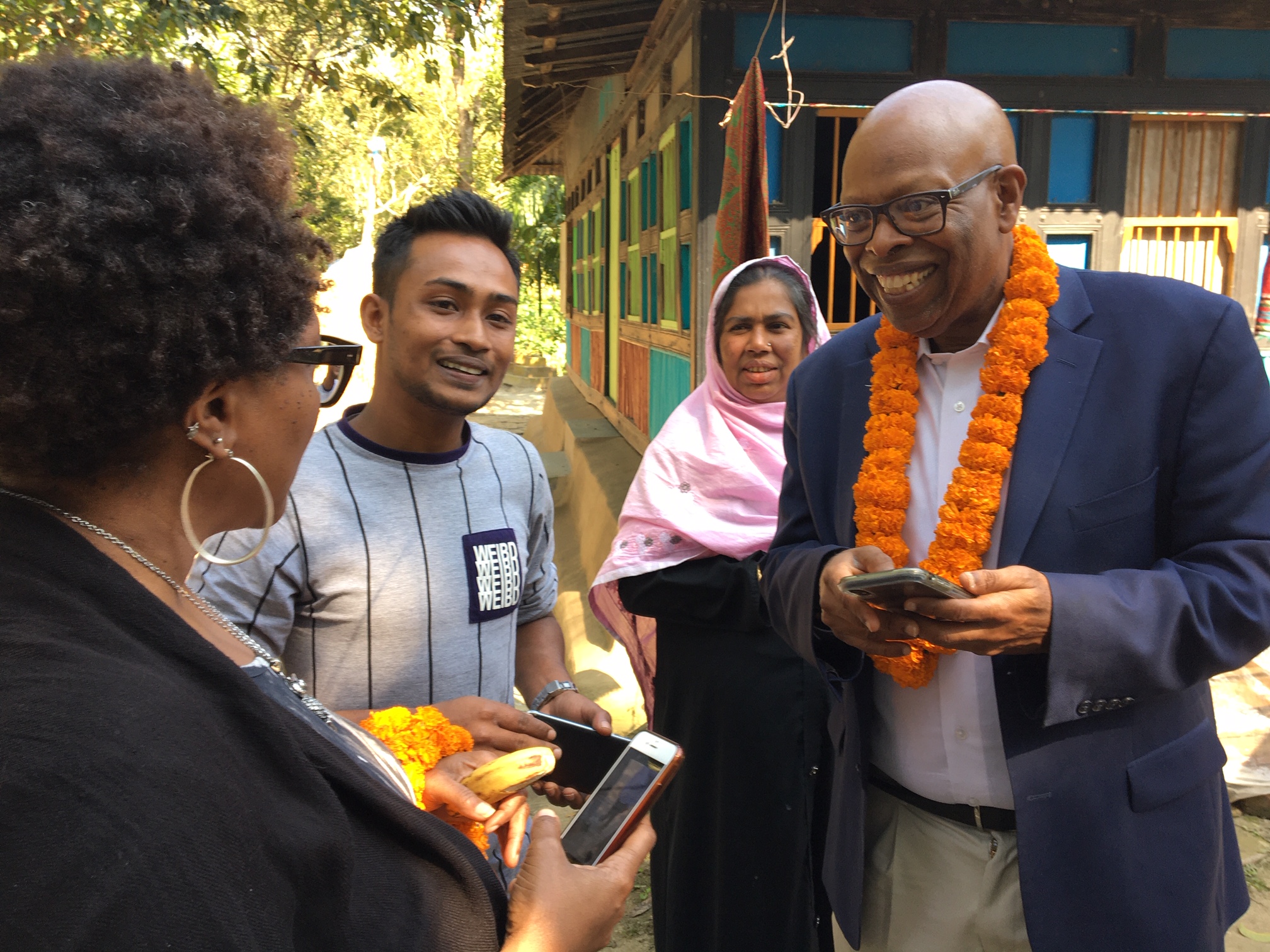 “I saw a woman transformed by the ministry of our global partners there,” said the Rev. Freeman Palmer, UCC Central Atlantic Conference Minister. “Before she was afraid to speak in public. Now she is both a successful entrepreneur and an elected official in her community. This transformation came about thanks to the ministry of the Christian Commission for Development in Bangladesh. Witnessing this transformation was a powerful and moving reminder that the church still can change lives and transform communities through the good news of the gospel.”
“I saw a woman transformed by the ministry of our global partners there,” said the Rev. Freeman Palmer, UCC Central Atlantic Conference Minister. “Before she was afraid to speak in public. Now she is both a successful entrepreneur and an elected official in her community. This transformation came about thanks to the ministry of the Christian Commission for Development in Bangladesh. Witnessing this transformation was a powerful and moving reminder that the church still can change lives and transform communities through the good news of the gospel.”
“This program gathers interested individuals and families into forums where small businesses, like raising chickens or fish or gardening, provide a means of income that is providing sustainability and growth in community,” said the Rev. David Higgins, transitional Conference Minister of the Heartland Conference UCC, which serves Ohio, West Virginia and north Kentucky. “One woman, the leader in the forum, raises chickens and uses the chicken droppings for biofuel. Her proud son showed us not only the chicken coops but also led us to the family’s brightly painted house. I will never forget him telling me, ‘Several years ago there was no joy in our village. But now there is joy!'”
“I think a moment such as this needs to be shared with the wider church,” Palmer said, “because our churches need to know that what we do in our support matters and has impact in places and ways we cannot imagine.”
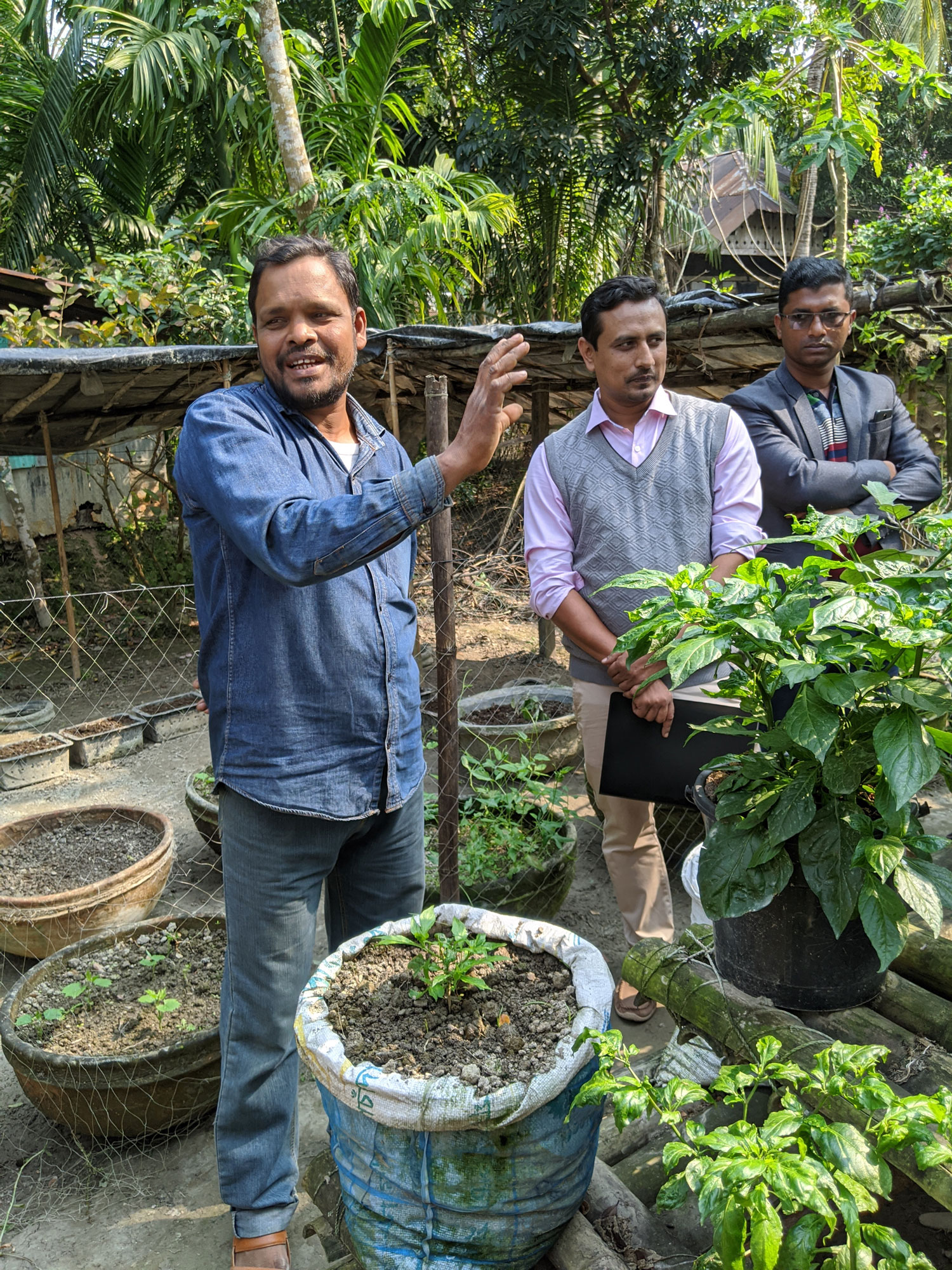 In another community in Bangladesh, the CCDB is empowering rural farmers to think of and look into different solutions for obstacles they face, like finding ways to de-salinate the soil contaminated by rising sea levels. “They are also testing floating gardens and hanging gardens and organic fertilizer and pesticides,” Choate said. “There’s one community center that is a typhoon shelter, community gathering space and educational center where farmers teach each other how to make organic compost that they can then sell to others.”
In another community in Bangladesh, the CCDB is empowering rural farmers to think of and look into different solutions for obstacles they face, like finding ways to de-salinate the soil contaminated by rising sea levels. “They are also testing floating gardens and hanging gardens and organic fertilizer and pesticides,” Choate said. “There’s one community center that is a typhoon shelter, community gathering space and educational center where farmers teach each other how to make organic compost that they can then sell to others.”
“Every day I felt as though my cup was filled to overflowing with inspiration and awe at how our partners are engaging the needs of the people, especially the extreme poor,” Long-Higgins said.
“This experience fostered for me a greater appreciation of the partnerships created and nurtured through the work of Global Ministries,” Palmer said. “I was fortunate enough to see firsthand how the partnerships we support through Our Church’s Wider Mission touch lives literally around the world. I am a witness to the efforts of Global Ministries to create a just world for all, one transformed life at a time. For that I am deeply grateful.”
“We rarely are given the chance to know in our bones it matters,” Dorhauer said. “There wasn’t a single day in the 17 when we failed to know the difference our partnership makes with these beautiful people halfway around the world. This is the world I want to live in. I come home fed and nourished in body and soul, mind and spirit. Am I exhausted? Totally. But it was worth every second of it.”
“It was an enriching pilgrimage,” said Deenabandhu Manchala, Global Ministries area executive for Southern Asia. “What all the travelers affirmed and appreciated was how the new friends we visited in each of the three countries were living their faith as minority Christian communities in multi-religious contexts. Though faced with many challenges, they did not seem to be a factor that deterred the engagement of people struggling for life, justice and dignity.”

